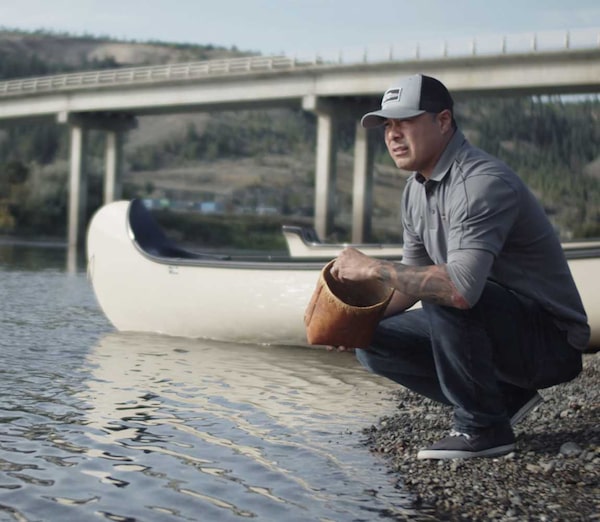
While the pandemic is causing unprecedented strife across the tourism industry, the suffering of Canada’s once-booming Indigenous operations appears especially acute.
Moccasin Trails’ Business Achievement Award must seem like ancient history to co-owners Greg Hopf and Frank Antoine. Part of the fastest-growing segment of the Canadian travel industry, the two-year-old small business was earning more than $15,000 a month when it won the All Nations Trust Co.’s 2019 Tourism Award for its guided canoe trips through British Columbia’s Secwepemc Nation.
Now, less than six months later, “cancellations continue, with no end in sight,” Hopf says. “At this pace, we may lose not only our business, but our homes and livelihood.”
This kind of bleakness blankets recent feedback collected by the Indigenous Tourism Association of Canada (ITAC), which is joining many of its 700 members in calling on the federal government to make COVID-19 assistance programs more accessible to Indigenous ventures. While the pandemic is causing unprecedented strife across the tourism industry, the suffering of Canada’s once-booming Indigenous operations – which accounted for nearly $2-billion in revenue last year, according to ITAC – appears especially acute.
“We’re not asking for special treatment,” says ITAC president and CEO Keith Henry, who explains that Indigenous operations face pandemic-related challenges others don’t. For one thing, most of the 500-plus startups that have opened over the past five years are family-run seasonal businesses that don’t qualify for the federal Business Credit Availability Program (BCAP), which will provide up to $65-billion in financial support to Canadian businesses, because they have yet to show profits, payroll expenses or revenue losses stemming from COVID-19. And as Hopf points out, “We cannot lay off staff, because we are the staff.”

Moccasin Trails co-owner Greg Hopf says cancellations are continuing 'with no end in sight.'
Another issue: many of these businesses don’t work with major banks and other institutions that administer government aid. “Existing COVID-19 support mechanisms don’t use Indigenous networks,” Henry says. “We have Indigenous capital corporations" – the All Nations Trust Co. being one example – “but there’s been no stimulus support for that network.”
Marion Joppe, a professor at the University of Guelph’s School of Hospitality, Food and Tourism Management, echoes Henry’s concerns. “If businesses can’t get bridging loans, or if travel restrictions remain in place until 2021, many of these micro and small businesses will not survive. This will be devastating not just for the owners, but also the largely part-time staff they employ and who will be unable to supplement their low basic incomes.”
By June, ITAC estimates that a quarter of the country’s 1,900 Indigenous tourism businesses will close, with more than a quarter of the subsector’s employees – 12,000 people – losing their jobs. “Indigenous tourism is one of the most important pillars of tourism in Canada,” Henry says. “Forty-five per cent of our business comes from outside the country, and these visitors aren’t here for Indigenous experiences alone. Half of our employees are non-Indigenous. One of the things I love about this industry is that it’s so symbiotic. It achieves reconciliation without being political.”
On first inspection, ITAC’s estimates actually appear less dire than those of the Tourism Industry Association of Canada, which is predicting 778,000 lost jobs – nearly half of those employed pre-pandemic – and as much as $6-billion in lost monthly revenue across the entire industry. However, this overlooks the relative importance of tourism to Indigenous communities, Joppe says. “Many of these businesses operate in more remote regions where opportunities for employment are difficult. Maintaining these businesses is important for the whole community structure. As Indigenous peoples are struggling to reclaim their cultural identities and ways of life, they’re also slowly reasserting their right to self-determination. This resurgence is strengthened by their ability to generate income for themselves.”
Even before the COVID-19 crisis, ITAC had requested a $550-million stimulus package from the federal government. Now, more than 15 years after the last significant federal investment, all creditworthy tourism operations with viable business models must be eligible for BCAP support, Henry says.

By June, ITAC estimates that a quarter of the country’s 1,900 Indigenous tourism businesses will close, with more than a quarter of the subsector’s employees losing their jobs.
The federal minister responsible for tourism, Mélanie Joly, has stated that Innovation, Science and Economic Development Canada is working on a new stimulus package for the Indigenous sector. “The government will continue to closely monitor the situation, and consult closely with Indigenous tourism representatives and stakeholders to ensure that the measures being taken are helping to address the significant challenges felt by tourism operators,” spokeswoman Geneviève Sicard said via e-mail. ”The government is committed to examining any further support necessary to ensure these important tourism businesses can continue to remain viable.”
ITAC, for its part, has created a $1.2-million stimulus package that will furnish 140 businesses with grants worth up to $25,000. “Our difficulty in accessing capital is nothing new,” Henry says. “It’s a systemic issue being showcased in this moment of crisis. However, amid this crisis, we have an opportunity to fix it.”
That opportunity extends beyond short-term financial support and longer-term economic gain, and into a post-COVID rethink of tourism in general, says Joppe. “The Indigenous way of understanding the interconnectedness of the physical and spiritual worlds is providing answers around how we treat the environment and the natural world.”
Keep up to date with the weekly Sightseer newsletter. Sign up today.
Editor’s note: An earlier version of this article incorrectly spelled Marion Joppe's name.